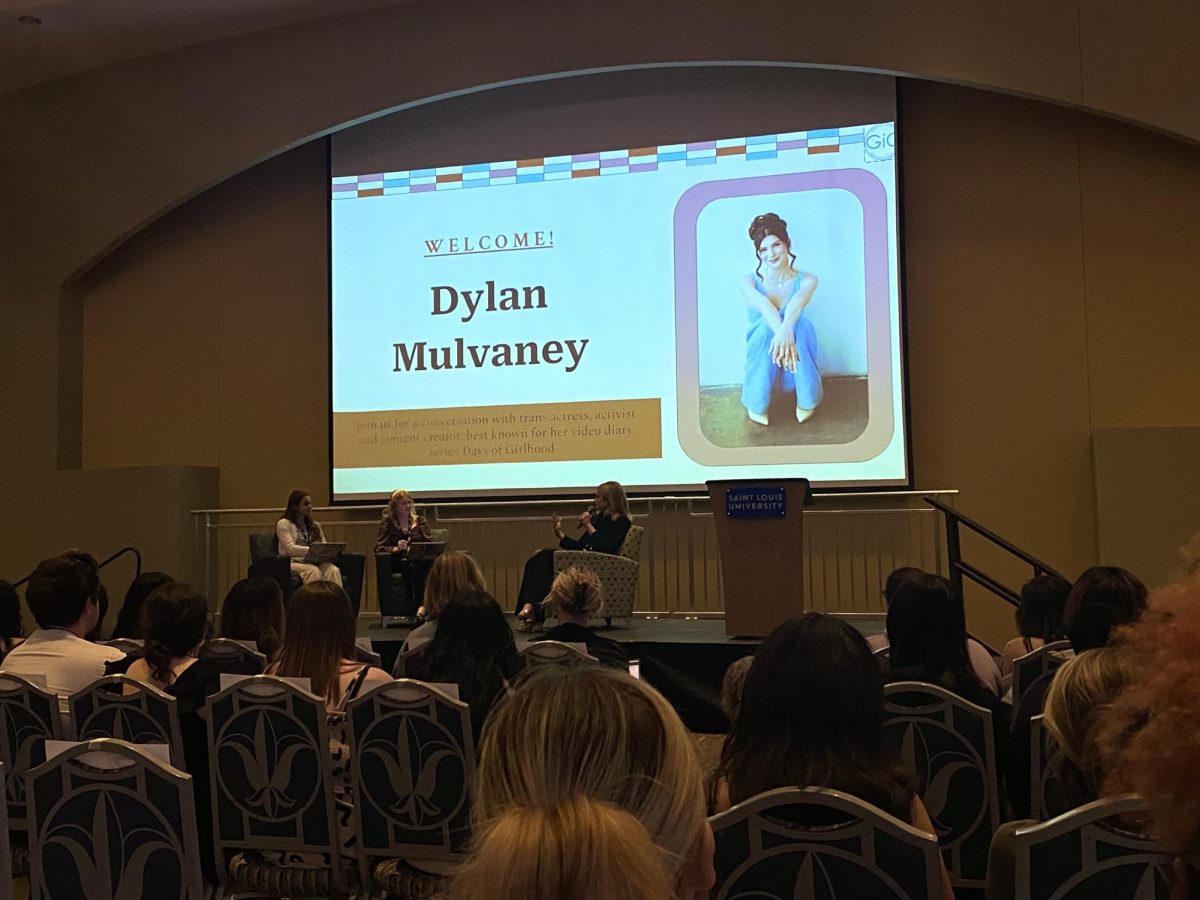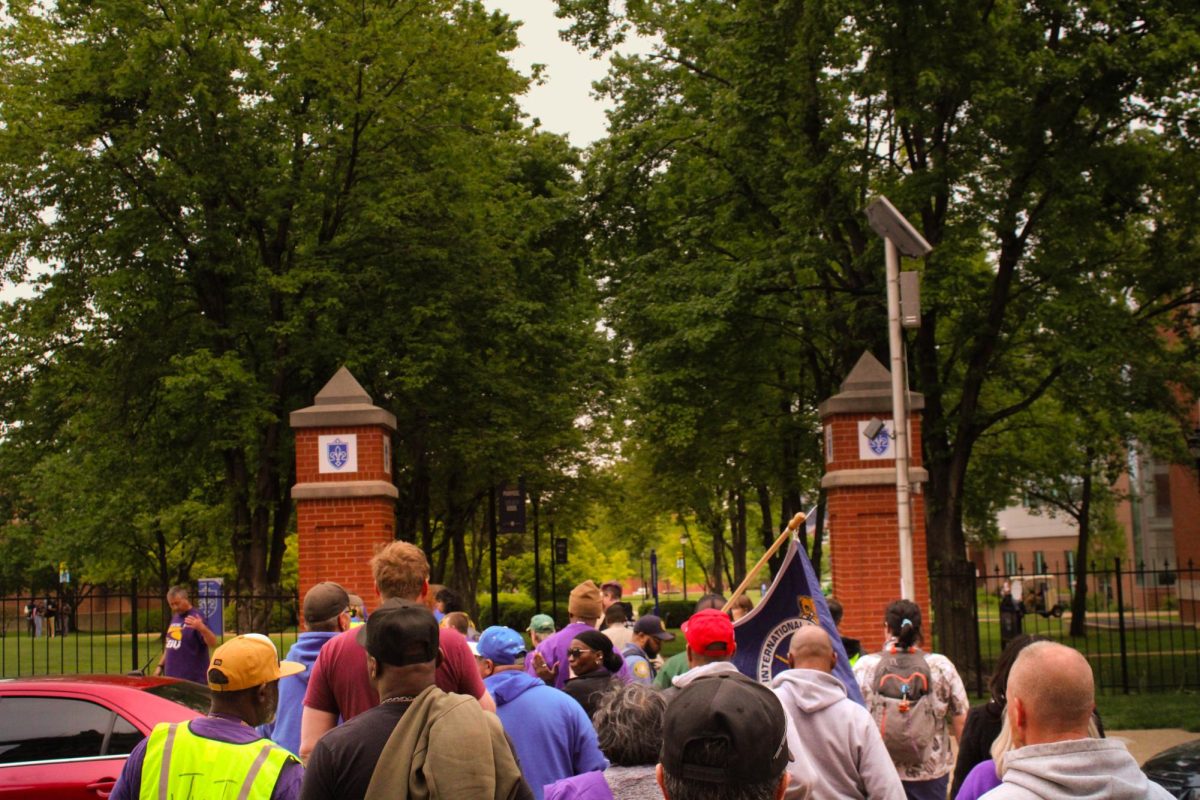As President George W. Bush and Senator John Kerry conclude
their last full week of campaigning before election day, it’s
becoming clear that Missouri’s electoral votes are not as readily
available to candidates as they have been in previous presidential
elections.
According to a number of polls, the state has swung into Bush’s
column–if only slightly. An Economist poll conducted in
mid-September gave the incumbent a 6 percent lead and another,
compiled this week by the online political clearinghouse Real Clear
Politics, gave the Bush a 7-point lead.
On Sunday, an article in the St. Louis Post-Dispatch reported
the race was a little closer, giving Bush a 48-45 lead–based on a
survey with a 3.5 percent margin for error.
By October, the Kerry-Edwards camp had pulled most of its
advertising from Missouri, according to another story in the Post.
(Multiple sources from both parties have said an array of
pro-Democrat groups have since shouldering the burden of promoting
the Kerry).
Yet where it may have lost its status as a battleground state in
the 2004 election, come next Tuesday, the Show Me State may retain
its reputation as an political barometer.
Known for its history of voting with the winner in every
presidential election of the twentieth century (except in 1956),
Missouri has specifically impressed political analysts for
producing a margin of victory for those winning candidates that
matched, with stunning accuracy, the victor’s national margin in
the popular vote.
“Missouri is considered the best bellwether,” said political
scientist Kenneth Warren, Ph.D., “because it mirrors, better than
any other state, the demographics of the nation.”
In 2000, though, Missouri missed the mark by 3.6 percent: Bush
took the state by a margin of 3.3 percent, but Gore took the
nation, in the popular vote, by 0.3 percent.
“And that’s a lot, actually,” said Warren, who is also a public
opinion pollster.
If the polls are correct, Bush might win the state next week by
an additional 3 to 4 percentage points–reflecting a national
numbers that put Bush slightly ahead of Kerry by 4 to 5 points, on
average. A CNN/USA Today/Gallup poll released Monday gave Bush a
52-46 lead.
Traditionally, Missouri’s demographic mix, especially between
urban and rural, has kept presidential races tight. Yet Bush seems
to have altered that scenario.
“Missouri is not a bellwether momentarily because Bush is a very
unique candidate,” Warren said. “He’s really pushing issues that
play well in Missouri…issues of God and country.
“Democrats have given up Missouri,” he added. “They’ve found
moral values issues are a hard nut to crack. They can only move so
far in the polls and they come up against this road block…against
Bush’s patriotism and moral values.”
And if there’s a single issue that has helped drive Missouri
votes for Bush, it’s religion.
“This is where NASCAR is king,” said a field representative for
the Republican Party working in Springfield, Mo., a major rural
area in the southwest part of the state.
“You don’t work on Sunday–not even at the office,” said the
Republican rep, who asked not to be named. “The Sabbath is a lot
more respected and taken a lot more seriously than up in St. Louis.
God is taken a lot more seriously, too, for that matter.”
The religious vote has also highlighted the difference between
urban areas, where someone’s religion is less likely to guarantee
who they’ll be voting for, and rural areas, where Evangelicals and
non-denominational Christians are more likely to vote for Bush.
“Catholic voters”–who are more prominent in cities–“are more
of a variable demographic than Evangelicals,” the rep in
Springfield said. He noted that Catholics are often split on moral
issues between Republicans and Democrats, where other Christians
usually vote for more conservative candidates.
“Most of those people are not going to be swung by Bush’s
religious appeal,” Warren said, “but two, three, four percent or
more is going to be enough. It’s probably going to be the deciding
factor in Missouri.”
Issues such as gay marriage and abortion, which social
conservatives have aligned with moral responsibility, have already
proved to be powerful deciding factors in Missouri.
In the state’s August primary, 70 percent of voters decided to
amend Missouri’s constitution to ban gay marriage. More
significantly, 40,000 of those who cast ballots voted only for the
gay marriage amendment, according to a report in The San Francisco
Chronicle.
Another report, in a recent issue of The Economist, noted that
Bush’s chief strategist, Karl Rove, has specifically targeted
conservative, Christian voters in this race. In 2000, the article
said, about four million Evangelical Christians slated to vote for
Bush never cast their ballots.
“Bush is wearing his religion on his sleeve much, much more, for
example, than Bob Dole, or even Bush’s father, in ’92,” Warren
said. “It has been considered inappropriate (in previous elections)
to make such blatant religious appeals.”
The Republican field rep said the only issues that may outweigh
moral issues for Bush supporters were the war on terrorism and the
right to own firearms. The Chronicle article concurred.
Warren noted that strong movements, like the one against gay
marriage, do sometimes produce backlashes as well.
In a number of battleground states, voter-registration campaigns
have yielded far more Democrats than Republicans. In Ohio, whose 20
electoral votes Bush won in 2000, get-out-the-vote (GOTV) workers
have accumulated 250 percent new registered Democratic voters, and
only 25 percent more Republican, Warren said.
Missouri, Warren noted, had shown similar, if not as drastic,
jumps in registration.
Saint Louis University senior, Michael Cantone, a field
organizer for Victory 2000, which has coordinated all of Missouri’s
Democratic campaigns, said registering new voters has been a
priority since the last presidential election.
“It was one of our major efforts since 2000,” he said. “New
votes are going to be the key turning point.”
Cantone, a senior at Saint Louis University, said that job
losses, along with healthcare, were prominent issues for Democratic
voters in Missouri. Education costs, he added, were especially
important for young voters.
“The campaign (in Missouri) never stopped,” Cantone said, “even
though the press played it that way.” He added that at the time
when Kerry-Edwards reduced its campaign in the state, it had
already identified enough voters for a victory.
“Registered voters are very, very, very up for Democrats,”
Warren said. But he cautioned that getting them to the polls within
a 13-hour window was a different challenge. “Will they actually
turn out in significant numbers?”






